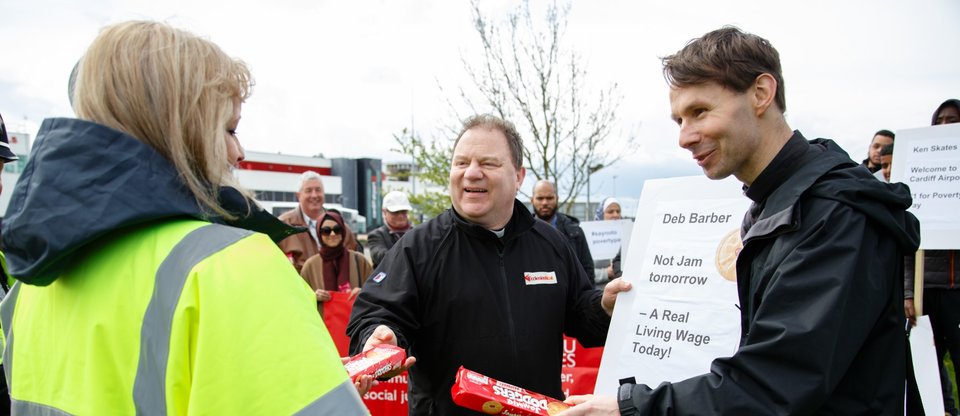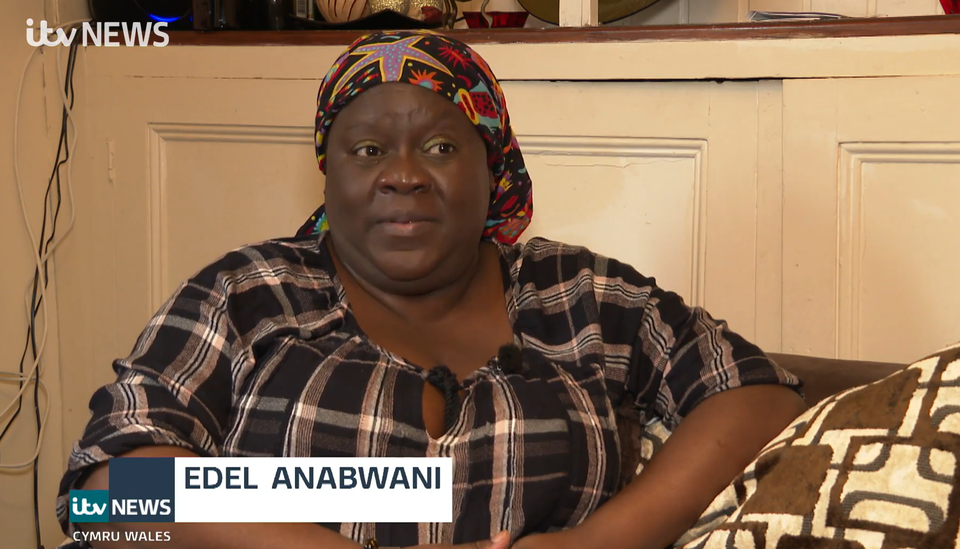Living Wage legend Edel on transforming pay for Welsh care workers
Living Wage legend Edel on transforming pay for Welsh care workers
The Welsh government recently agreed to pay all care workers across Wales the real Living Wage. That’s a pay rise for thousands of people, at a time when the cost-of-living crisis is hitting those at the sharp end of poverty the hardest.
Meet Citizens UK Associate Organiser Edel Anabwani who has tirelessly campaigned for a real Living Wage for health and social care. Edel explains how she helped to win those pay rises.
'Tell us a bit about your role in campaigning for a real Living Wage'
Back in 2019, I worked on the Living Wage for Social Care campaign in multiple roles; I was a community leader, caseworker, advisor, organiser, mobiliser and influencer. I alternated roles depending on the occasion and what skills were needed to progress our campaign.
One of my first actions was to organise a health and social care training during Covid-19 for over 100 care workers. These care workers were often underpaid, despite being on the frontline of the covid pandemic themselves. The training helped build awareness of the real Living Wage campaign, whilst ensuring care workers were taking care of themselves. Their jobs alone required so much emotionally and physically especially during the pandemic, that it shows how determined care workers were to be valued and attend the training to ultimately get a wage that meant they could afford to live and weren’t worrying about bills. All attendees were certified after the training.
On top of delivering training, I took the time to listen to over 100 care workers to really understand their fears and determine what their needs were. This led to me signposting agencies that could help, and organising another training with Water Wales on how to help care workers save on bills and secure the best tariffs at a time when the cost of energy was skyrocketing.
As my campaigning role grew in momentum, I met with the First Minister of Wales on numerous occasions, as well as other Westminster ministers and policy makers. Eventually the hard work paid off and our campaign was successful, the Welsh Government officially agreed to fund paying tens of thousands of care workers a real Living Wage. In recognition of this, I appeared in the media including speaking to ITV about the importance of a real Living Wage for care workers, sharing from my own perspective and that of other care workers just how hard care work is.
I remember talking about how “Even the care recipients would comment on how much we have to do in our jobs, feeding them, cleaning them and then on top of this, thinking about the bills we’re struggling to pay back at home”.
Reflecting on the campaign, I felt proud to be publicly acknowledged by the First Minister of Wales for my work. I also felt humbled to be called upon by academics and policy think tanks to share my views as an expert in the field of Health and Social Care at the Conservative Party Conference in 20222.
After speaking publicly about the campaign, I found that it had encouraged other care workers to come out and speak about similar issues. This is another thing that makes me proud – helping colleagues in care to finally tell their story without fear to the public, in front of decision-makers and in the media.
'Given that low-paid jobs in social care are often disproportionately done by women from racialised communities, I can imagine this campaign was also particularly important for Black people, and women. Was this your experience?'
Yes, most of the workers in the UK care industry are migrants. A big percentage of whom identify as Black and female.
Women in the Black community take the role of bread winner seriously and in the UK, this often falls upon them. Most come here as highly educated, but due to reasons that I will not dwell on here, end up in the care industry. Another common pressure faced by Black communities is the expectation that those with jobs should take care of extended family within the UK, as well as those left in the motherland.
It therefore goes without saying, decent pay is vitally important for breadwinners. Poverty wages barely cover care workers’ own needs, let alone that of their extended families, and will only add to their pressure to make ends meet.
'It is vital we recognise the history behind transformative movements like this, so key people and their contributions don’t get lost to time. What is one thing you’d like people to remember about how the real Living Wage was won for care workers in Wales? And are there any other leaders you’d like to recognise?'
The Living Wage campaign in Wales has seen Welsh care workers pay increased by £500, £700, £1500 in the last three years in appreciation of their contribution to social care. But I believe the job isn’t done, and it’s important for the care workers to continue being involved in the movement to ensure that not only is the pay continually uplifted to reflect the rising costs of living, but the working environments are conducive and supportive.
I’d like to recognise a few people who have helped to push this campaign forward over the years - Shalom Fedora, Olutayo IBikunle, Olubusola Maradesa, Miranda, Carol Thompson, who between them are based in various parts of the UK but are relentlessly determined in their efforts to ensure all workers, everywhere receive decent pay and working conditions.

The movement for a real Living Wage brings together people, businesses and communities to end the injustice of in-work poverty. Over 14,000 employers have voluntarily accredited with the Living Wage Foundation since our campaign began.





